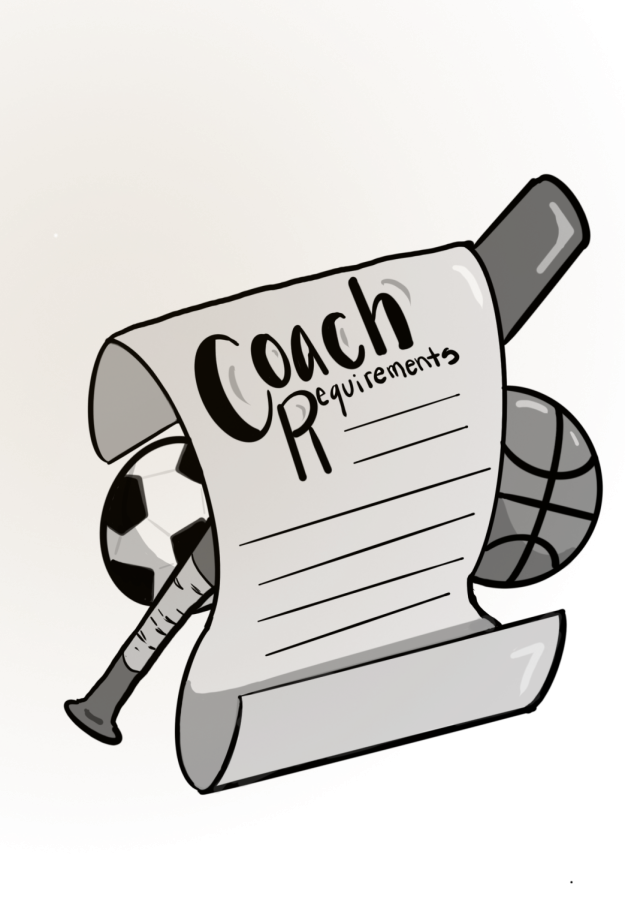SPORTS: SCHS athletic program works to hire talented coaches devoted to the success and improvement of their team and each individual athlete
Oftentimes, finding a good coach can be a big factor in making or breaking a successful high school athletic program. The process of finding an excellent coach, however, can prove to be challenging.
Members involved in the SCHS athletic program broke down their experiences in the coaching selection process and how the procedure is organized. According to Athletic Director Nelson Gifford, the athletic program starts with the coach and their ability to build a team around their leadership.
“It is everything. When you hire a strong – you could call them a head coach, but you could call them the executive of any program when you hire somebody who is really good at their job,” Gifford said. “They change everything. Everything becomes easier.”
While selecting and hiring coaches, Gifford aims to find coaches who are devoted to becoming deeply involved with the SCHS community.
“What we are really striving for are people that philosophically match what we are trying to achieve as an athletic department and as a school,” Gifford said. “We want coaches that are good people, that like kids, that love being there for them, encouraging them and seeing them grow and develop.”
Physical education teacher and boys water polo coach Gene Kendall shares Gifford’s beliefs and matches the goals Gifford wants to reach at SCHS.
“I do not want it (water polo) to be just another sport on campus,” Kendall said. “I hope we are good. I would like to win and be successful and all that, but part of winning requires a good community, not just talent.”
Boys JV soccer coach Derrick Eszlinger has a goal in mind when coaching: to make his players the best version of themselves they can be.
“For the team as a whole, just help them grow,” Eszlinger said. “I want them to learn. I want them to just take little things away from what I teach them and add it to their game, so they can mold into better players.”
Kendall has a similar coaching purpose as he aims to prepare his players to continue participating at a collegiate level.
“My saying is, ‘We are gonna work hard, but we’re gonna have fun while we’re doing it.’ That’s how I approach life as well, and I hope that that translates to my program and the kids feel that as well,” Kendall said. “Because we only get a chance at this whole thing once, so you want to work hard at it.”
While many agree a good coach goes a long way, Gifford has found it difficult to discover and recruit coaches for SCHS sports, and he believes the wages and economics explain why.
“So if I am a club soccer coach, I might make tens of thousands of dollars coaching club soccer, versus in that same timeframe, maybe I will make $3,000 during high school,” Gifford said. “So do I take a 50% pay cut to coach in high school, or do I just stay with my club organization?”
However, Gifford believes that finding a good coach makes the recruiting and hiring challenges worth it.
“There are real challenges about the availability of those coaches, and there is a lot of competition for high-quality coaches,” Gifford said. “They can do a lot to transform a program, so they are in demand, and the ability to attract them is really our job.”
Because of these restrictions, Gifford can only look for coaches within a limited radius of the Bay Area and SCHS’s campus.
“We have three different pools of people that we tap into,” Gifford said. “One are current staff, so within district employees, and the next thing we will do is we will post that job on what is called Edjoin, which is basically just a job database for all high schools in California.”
Gifford often has to use networking to recruit coaches.
“The third place are the social connections, so that’s calling people that we know,” Gifford said. “So if we need a badminton coach, I’ll call up some other ADs in the area, talk to their badminton coaches, reach out to them, that sort of thing.”
Eszlinger’s career began as a volunteer goalkeeping coach for the boys soccer team prior to entering his JV coaching position.
“I do goalkeeper training – that is how we first got in touch – so I asked to be a volunteer goalkeeper coach and did about a year of just goalkeeping coaching,” Eszlinger said. “Then the year after, I was the assistant coach on JV, and then when the head JV position got vacated is when I became the head JV coach.”
When recruiting, Gifford seeks coaches with a passion for vigorous involvement in their athletic program and motivation to improve both the individual players and the team as a whole.
“The one thing that we are striving for as a department is to grow all of our coaches together, to break them out of their shells in terms of their own sport and see themselves as a part of a greater community,” Gifford said. “We have seen just within this year, a lot of cross-sport support.”


